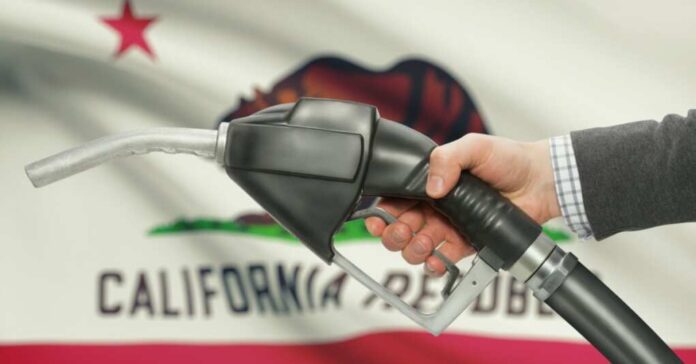
Here we go again—California, the state that never met a regulation it didn’t like, has decided to make life even harder for its residents. The California Air Resources Board (CARB), in its infinite wisdom, has approved changes to its climate program that are all but guaranteed to raise gas prices. Because, apparently, paying $6 a gallon just wasn’t enough. It’s like they’re running a contest to see how quickly they can drive the middle class out of the state.
CARB insists these changes are necessary to fight climate change, which in California has become less of a policy objective and more of a religion. Forget about practical solutions or balancing environmental goals with economic realities. No, this is about signaling virtue at any cost—your cost, to be precise. Want to drive to work? Take your kids to school? Too bad. The climate czars have decided that your wallet is a small price to pay for their green utopia.
The new measures are part of California’s cap-and-trade program, which is designed to limit greenhouse gas emissions by making it more expensive for businesses to pollute. In theory, it sounds great—who wouldn’t want to reduce emissions? But in practice, it’s a bureaucratic boondoggle that punishes regular people far more than the corporations it’s supposed to target. Companies simply pass the costs onto consumers, and before you know it, you’re paying an arm and a leg at the pump while tech billionaires cruise around in private jets.
This is classic California policymaking: penalize the average Joe while letting the elite off the hook. The politicians and regulators pushing these changes aren’t worried about gas prices—they don’t pay for their own fuel. They’re chauffeured around in government vehicles or drive Teslas paid for by six-figure salaries funded by taxpayers. Meanwhile, the hardworking families they claim to care about are left scrambling to make ends meet.
Let’s not forget the timing of all this. Inflation is still squeezing household budgets, and California already has some of the highest gas prices in the nation. Yet CARB decided this was the perfect moment to make fuel even more expensive. It’s as if they’re completely detached from the realities of the people they’re supposed to serve—or maybe they just don’t care. After all, for the political class, higher gas prices are a feature, not a bug. It’s part of their broader agenda to push people out of cars and onto public transportation, whether it’s practical for them or not.
What’s truly infuriating is the hypocrisy. California loves to tout itself as a leader in clean energy, yet its policies are riddled with contradictions. The state imports much of its electricity from out of state, often from coal-fired power plants. It’s also been slow to approve new clean energy projects, bogged down by the same kind of red tape that’s now driving up gas prices. So while they pat themselves on the back for saving the planet, the actual impact of their policies is debatable at best.
And then there’s the broader question of fairness. California’s climate policies disproportionately hurt rural and working-class communities. If you live in a city, you might be able to get by without a car. But if you live in the Central Valley or any of the state’s countless small towns, driving isn’t a choice—it’s a necessity. Higher gas prices hit these communities the hardest, but their voices are often drowned out by coastal elites who think everyone should just buy an electric vehicle and call it a day.
The truth is, California’s climate program isn’t about helping the environment—it’s about control. It’s about imposing a one-size-fits-all solution on a diverse state and punishing anyone who doesn’t fall in line. And if it happens to make life unaffordable for the middle class, well, that’s just collateral damage.
California’s leaders love to talk about equity, but their policies tell a different story. Raising gas prices in the name of fighting climate change doesn’t hurt the rich—it hurts the people who can least afford it. And the worst part? It’s all for show. California’s emissions make up a tiny fraction of the global total. Even if they achieved zero emissions tomorrow, it wouldn’t make a dent in the global climate. But hey, at least they’d feel good about themselves.
So, the next time you fill up your tank and see the total climb higher than your weekly grocery bill, just remember: it’s all for the greater good. Or at least, that’s what they’ll tell you. In reality, it’s just another example of California’s political class putting ideology over common sense—and leaving you to foot the bill.











